
— Liam Murphy
The onslaught of Chinese SUVs might seem overwhelming, with new makes and models seeming to pop up every other week. Rest assured though, not all brands are taking a ‘more is better’ approach when it comes to their line-up.
Geely is one of these, releasing its Starray EM-i plug-in hybrid electric vehicle (PHEV) medium SUV as just the second model introduced to Australia since the all-electric EX5 early this year.
We drove the Geely EX5 back in February and thought it was a pretty good thing – strong sales figures since have certainly supported that. So let’s see if Geely’s been able to bag another winner with the Starray.
Thanks to ongoing price wars among other Chinese PHEV rivals – such as the Chery Tiggo 7 Super Hybrid ($39,990 drive-away) and BYD Sealion 6 ($42,990 before on-roads) – Geely has gone aggressive with the Starray’s pricing model.
While not quite snatching the title of cheapest PHEV in Australia from the Tiggo 7, the Starray does land as the second cheapest, starting from just $37,490 before on-roads for its entry-level Complete trim.
Moving to the top-spec Inspire bumps the price up to $39,990 before on-roads, but packs an impressive amount of additional kit which we’ll get into later.
Adding bite to the Starray’s value proposition, Geely is also offering promotional deals for vehicles ordered by 30 November and delivered by 31 December, including a 3.88 per cent comparison rate or three years/45,000km of complimentary servicing, a free mode 2 home charging cable and complimentary premium paint.
Buyers who place an order before 30 September and take delivery by 30 November are eligible to have their deposit discounted from the total price, up to $1000.
Backing the Starray is a seven-year, unlimited kilometre warranty, with its high-voltage battery covered for unlimited kilometres over eight years. Intervals are listed at every 12 months or 15,000km.
Servicing within the Geely dealer network also provides owners with up to seven years of roadside assistance.
While on the subject of servicing, between the launch of the EX5 and Starray, Geely has grown its dealer network from 22 to 46. Still modest numbers in the grand scheme of things, but a good showing that Geely isn’t putting the horse before the cart when it comes to bringing new models here faster than it can support them.
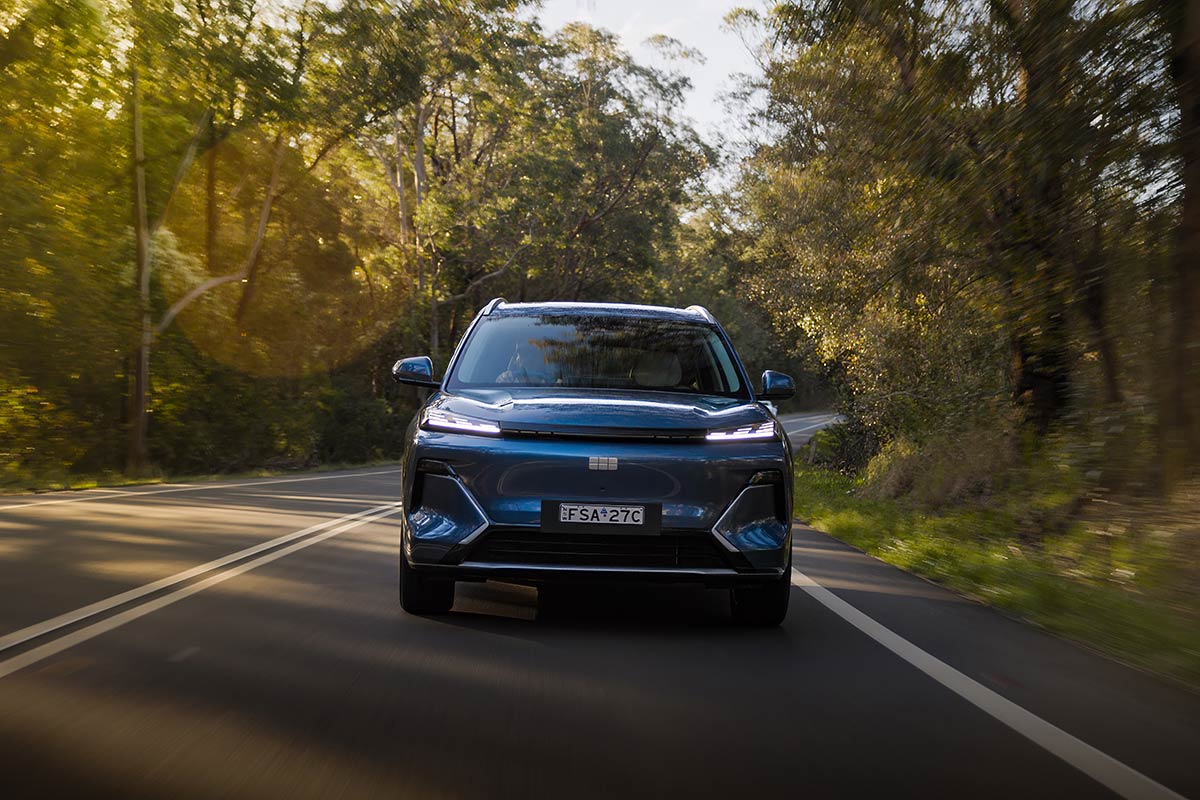
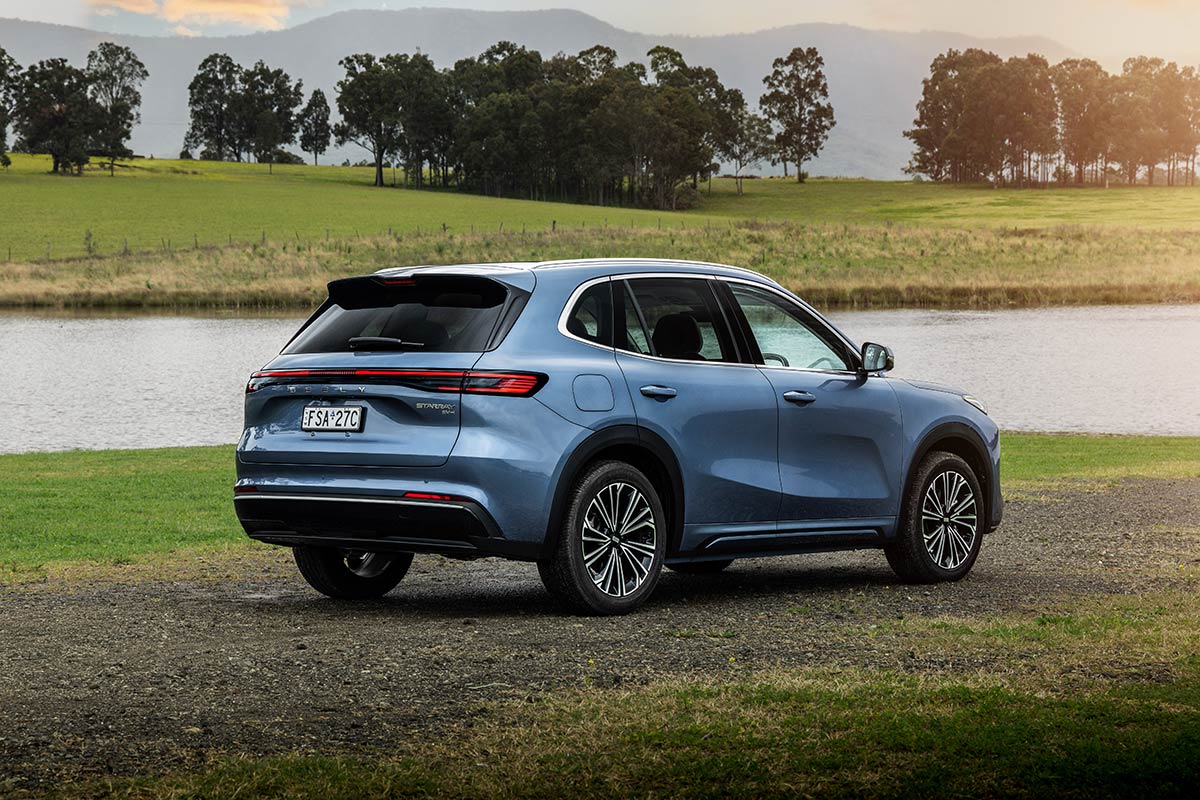
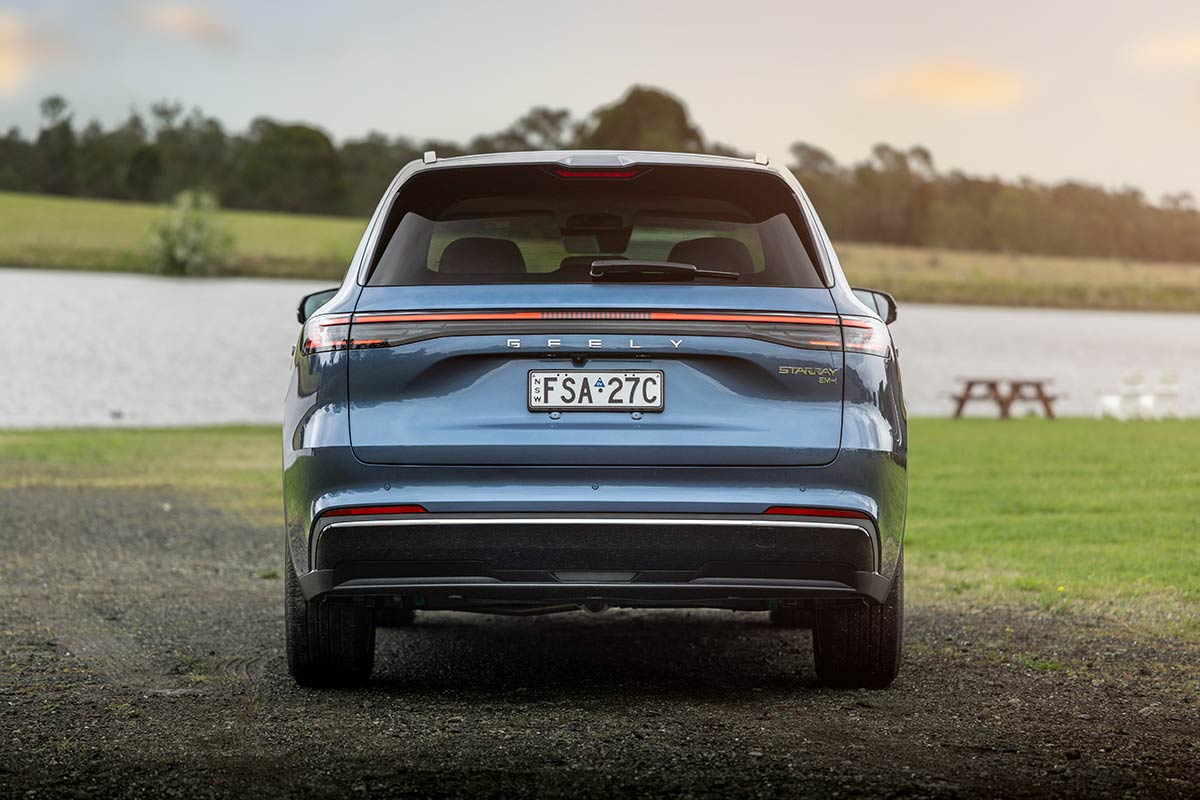
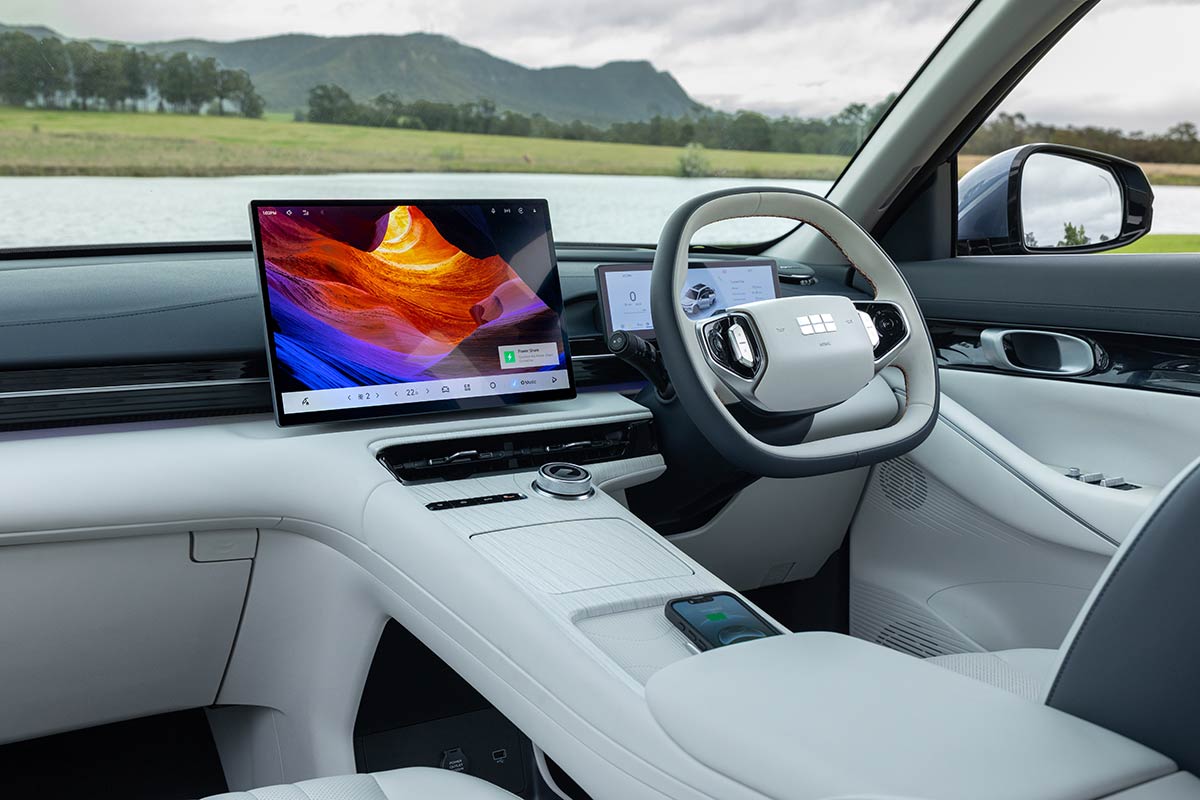
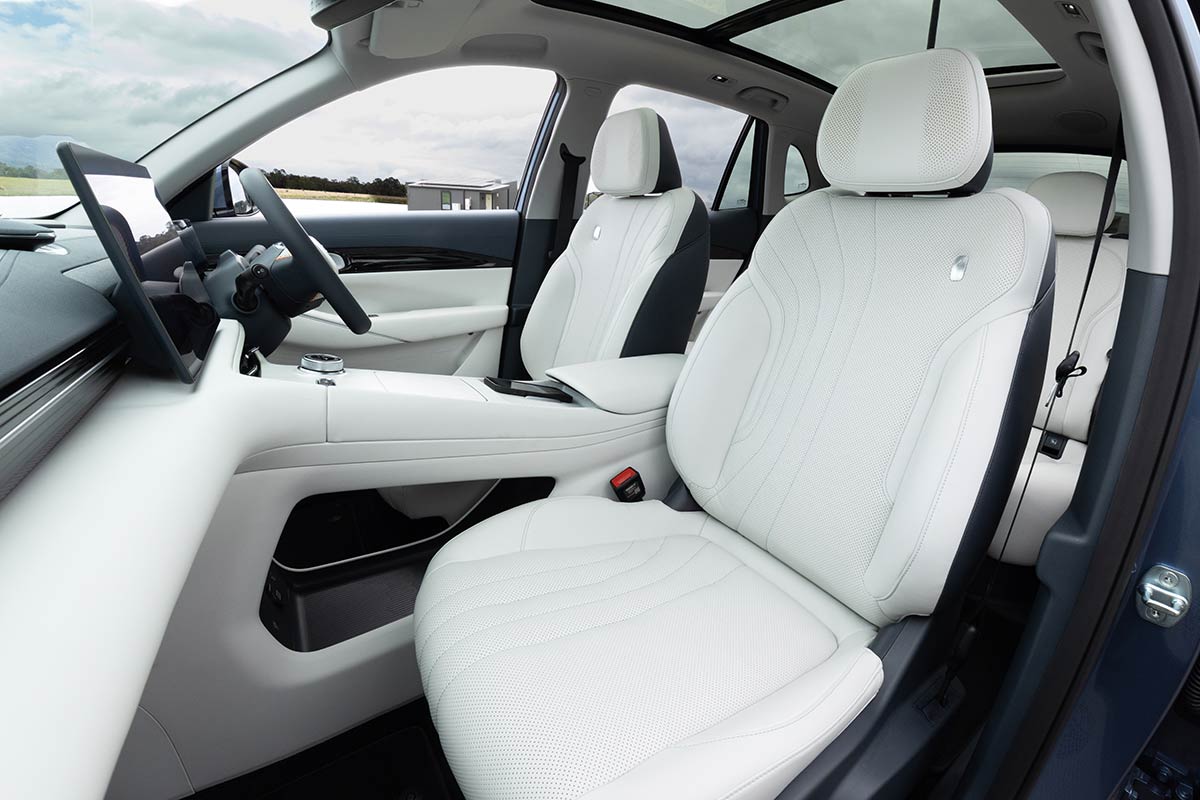
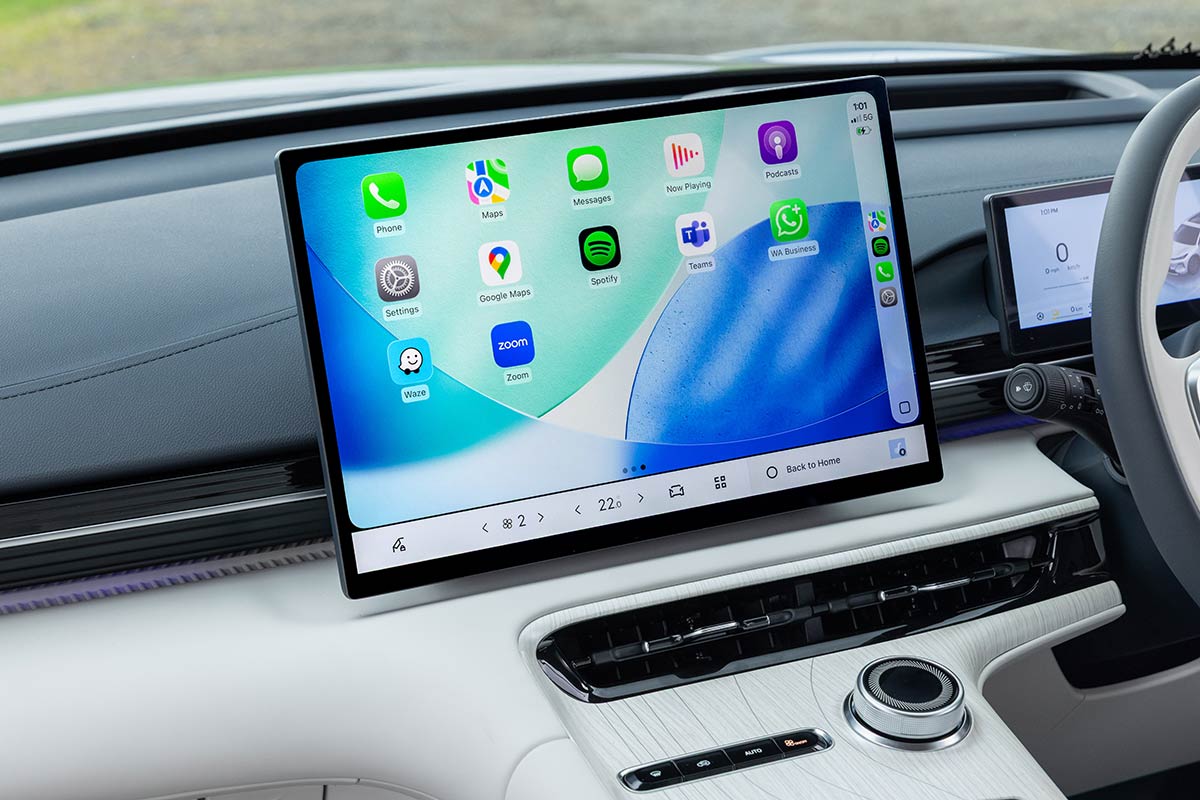
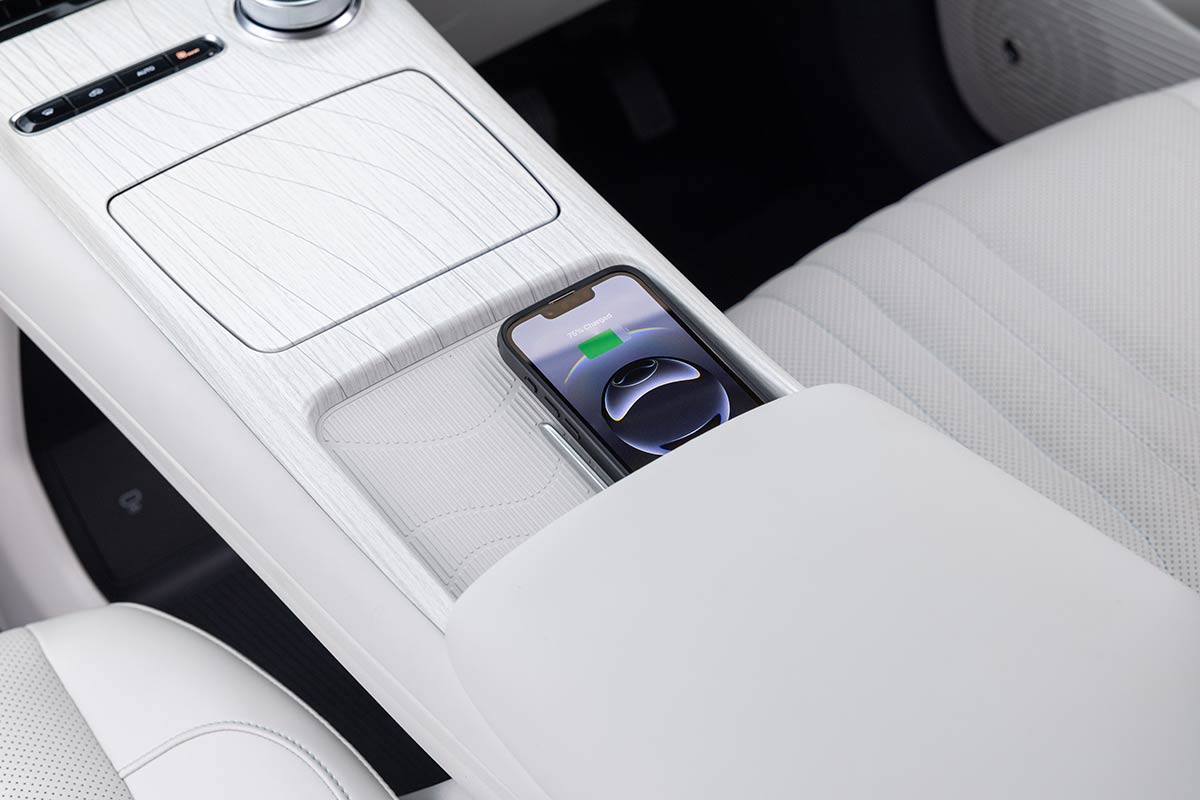
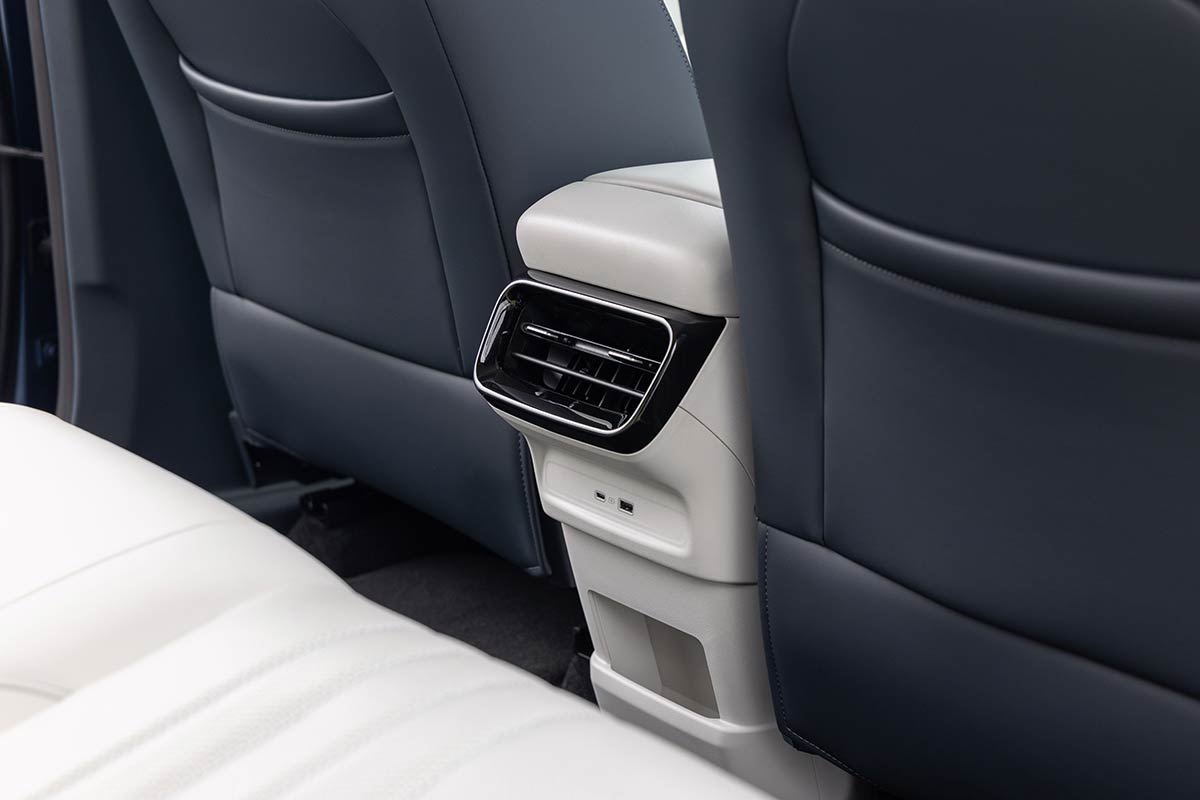
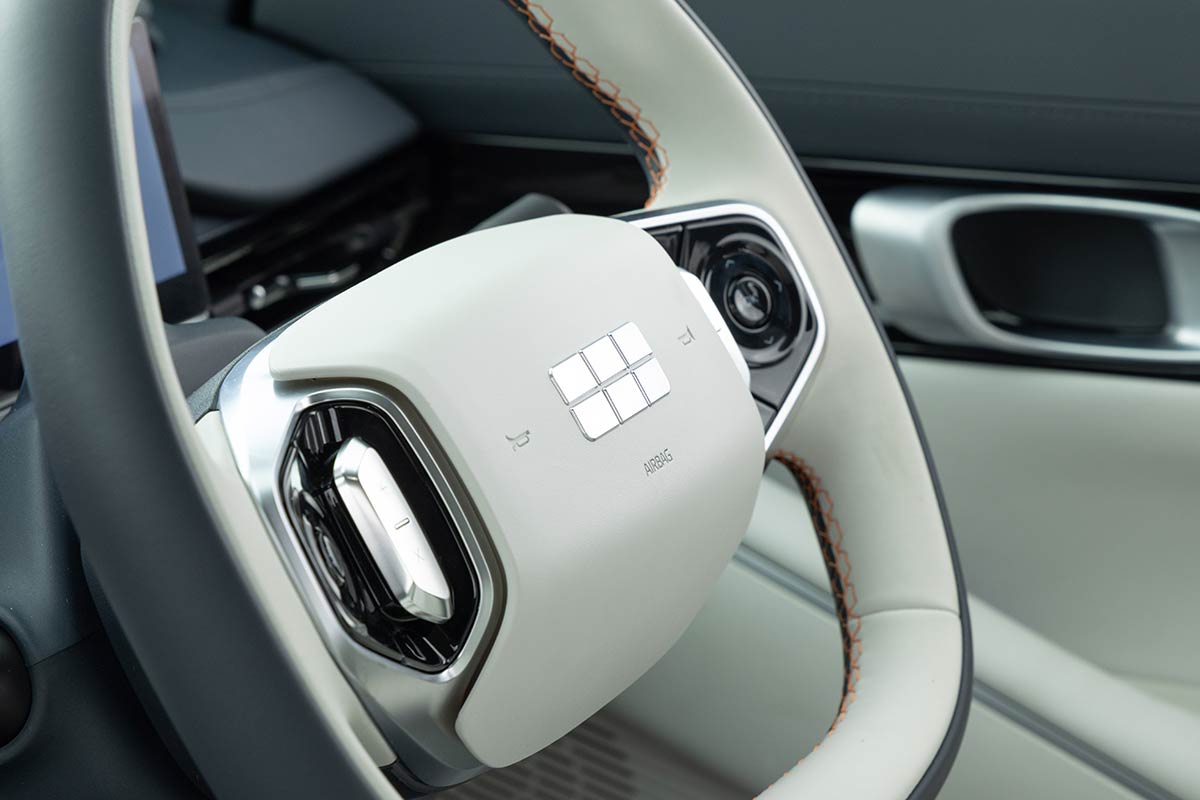
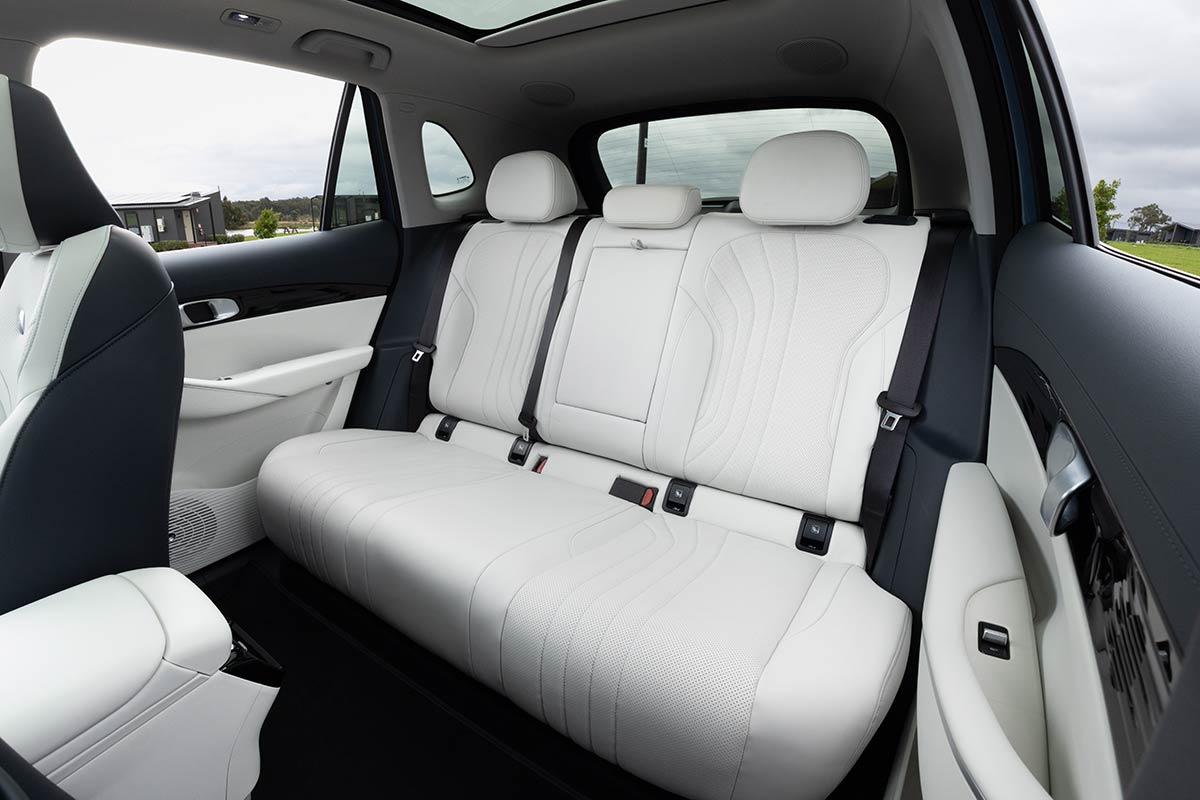
It’s no coincidence that the 2026 Geely Starray is a pretty handsome thing. Geely has snatched talent from Europe – with at least one from famed Italian designer Pininfarina – for its design branch, and the results have paid off.
Playing in the popular mid-size SUV segment – measuring 4740mm long, 1901mm wide and 1670mm high – the Starray presents with good proportions. It’s a nice blending of smooth and sharp lines, packing personality that the EX5 desperately lacks. All Starrays come in a standard Alpine White paint, with an additional five premium options running up $600.
Inside, there’s not much to complain about. Like the EX5, the Starray’s cabin fit-out suggests it should probably wear a heftier price tag than it does. Physical dash buttons are kept to a minimum, save for limited climate control inputs and a rotary dial.
Most controls are housed within a 15.4-inch screen featuring satellite navigation, wireless Apple CarPlay and, from Q1 2026 (via an over-the-air update) Android Auto, which you’ll be thankful for because the standard infotainment layout is not the most intuitive we’ve used.
A crisp 10.2-inch driver display shows all pertinent information, albeit through a generic interface that feels somewhat copied and pasted among other Chinese brands. Inspire grade upgrades to a 13.8-inch head-up display, forming what the brand calls its ‘Golden Triangle’ of screens. It’s not as imposing as it sounds, however, and the Starray does not bombard drivers with screens and information at all times.
Front seats, although lacking some adjustability (electric six-way for driver and four-way for passenger), offer exceptional comfort and support. Heating features as standard up front, with ventilation added on the top-spec variant.
Their ability to recline to fully horizontal is also a nice touch, especially when paired with the panoramic sunroof on Inspire grade.
Rear-seat comfort is good, however the rear seats do not recline or slide. The latter is no issue though, with an abundance of legroom even with front seats taken all the way back. A low rear doorline makes the cabin feel even more spacious for rear-seated passengers, also aiding overall visibility out of the cabin for drivers.
The trade-off for this is limited boot space, with the Starray 428L capacity acceptable but far from class-leading.
Playing at the cheap end of the market comes with corresponding and inevitable sacrifices in standard equipment, however the 2026 Geely Starray EM-i still scores some impressive inclusions.
LED head and tail lights come as standard, with 18-inch alloys on Complete trim growing to 19 on Inspire. A surround-view monitor with a 3D vehicle view and rear parking sensors come as standard, with front sensors added to Inspire trim. More on the Starray’s safety suite a little later on.
A six-speaker sound system comes as standard, upgraded to a 16-speaker ‘Flyme’ system (Geely’s own) in Inspire, accompanied by a wireless phone charging pad, power tailgate, panoramic sunroof, a memory function for the driver’s seat and a 256-colour ambient lighting system.
At the time of writing, the 2026 Geely Starray EM-i had not been rated by ANCAP, however, the brand is confident of a five-star score based on the Starray’s safety kit and its not-so-dissimilar EX5 sibling achieving the top mark.
Boasting a comprehensive safety suite, the 2026 Starray scores seven airbags (two front, two side, two curtain and one centre, autonomous emergency and multi-collision braking systems, high beam assist, rear parking sensors (with front sensors added on Inspire trim) and a surround-view monitor.
Hill descent, adaptive and intelligent cruise controls all come as standard, with driver fatigue, occupant detection, rear cross-traffic and blind spot alerts. Lane keep and change assists, traffic sign recognition and door open warnings all further bolster the safety proposition.
The 2026 Geely Starray EM-i is the latest in a growing trend among Chinese carmakers to name their PHEV systems ‘super hybrid’. Regardless of the nomenclature, the Starray is ultimately a PHEV, pairing combustion and electric power for added range beyond the battery.
In the Starray’s case, these come in the form of a 1.5-litre petrol engine and a single electric motor accompanied by an 18.4kWh battery pack. Geely claims the Starray is good for 934km of range from a full 51-litre tank and charge, with up to 83 of those able to be achieved on electric power alone thanks to a ‘Pure’ EV drive mode.
Power, of which there is 193kW in total (160kW coming from the electric motor and 73kW from the petrol engine), is sent to the front wheels via a dedicated hybrid transmission. Geely doesn’t state a combined system torque figure, but the petrol engine alone is said to be good for 125Nm and the electric motor for 262Nm.
Max charge rates are stated at 30kW DC and 6.6kW AC, with the Starray sipping, at minimum, 95 RON petrol. Interestingly, the Starray’s vehicle-to-load (V2L) rate is 6.6kW – double that of the all-electric EX5’s 3.3kW V2L rating.
We feel like a broken record saying this again but, like the EX5, the 2026 Geely Starray EM-i proves that while the brand may be new to Australia, it is not new to building cars.
The Starray ticks boxes for the fundamentals, with good ergonomics, driving position and visibility. Unlike some hybrid rivals, the brake pedal does not create a ‘dragging’ or overly sensitive pedal feel, with acceleration delivered from the other pedal in an equally progressive way between drive modes.
During our testing, ensuring we didn’t do the hybrid system too many favours, we saw consumption of 3.8L/100km – putting Geely’s 943km range claim well within the realm of achievable. We’re a tad sceptical of the 193kW claimed power figure (it feels like markedly less) but, regardless, the Starray provides smooth acceleration from all speeds without feeling overly laboured.
Sound is another matter however, with the EM-i hybrid system firing the petrol engine to life at high load demands with volume, resonance and a lack of refinement. It’s a scenario you won’t find yourself in often behind the wheel, but other rivals have clearly paid more attention to insulating the cabin from this.
We griped with the EX5’s ride on Australian roads and, while the Starray we receive has the European suspension tune, it’s been validated locally – and shows. Providing good servings of cushioning and feedback, the Starray gives drivers a connected feeling to the road even on the larger 19-inch wheels.
While the suspension can struggle to deal with larger road imperfections (and it still has a bit of the ‘bobbing’ we noticed in the EX5), it’s impressively sorted and a leap in the right direction compared to some key rivals in the segment. For every slightly imperfect absorption of a bump comes a reminder of the sticker price, and it’s all pretty easily forgiven.
Inside, the Starray is comfortable for both drivers, front- and rear-seated passengers. Noise is kept to a minimum in the cabin, with seat design providing comfort and support over a pretty long road test. A mark against overall cabin comfort is the Inspire’s sunroof, which suffers bad wind buffeting above about 65km/h.
Active safety – especially lane-keep – is very particular, plotting a roughly one-micron-thick path through corners that it deems acceptable. The result is a very heavy steering feel, but without the tugs and tremors found in more punitive systems. Switch it off, and the Starray reveals decent steering weight and feel.
Geely Australia isn’t rushing anything, and it’s a refreshing change of pace in the onslaught of new Chinese brands and models entering Australia.
The 2026 Geely Starray EM-i is a well-rounded performer, and its budget price tag isn’t really highlighted by a weakness in any one area.
Love it or hate it, the Chinese-led price wars are forcing cars to be cheaper and better, and the Starray is an almost unfathomable amount of car for the money.